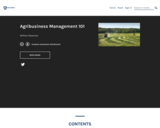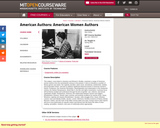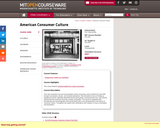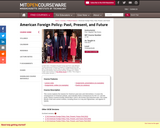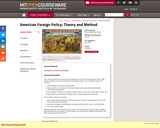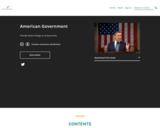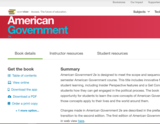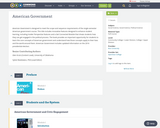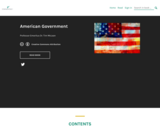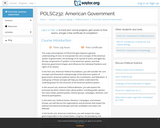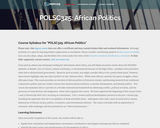
This course will provide the student with a broad overview of African politics placed within the context of Africa's recent history, taking into account Africa's colonial relationships and then the post-colonial period. This course will analyze on the internal workings and challenges of African states, including their movements towards democratization, their economic statuses, the connections between their governmental and non-governmental institutions/organizations, and the various ways in which their societies and cultures impact their politics. This course also asks questions about the nature of Africa's conflicts, reviewing larger trends within Africa's political economy, and inquiring about the promise of continental and sub-continental political integration efforts. Upon successful completion of this course, the student will be able to: explain how colonialism and independence movements contributed to and shaped contemporary African statehood; identify the main causes of state and political failure in Africa; define underdevelopment and explain the causes of economic failure in Africa; discuss the causes of civil and interstate conflict in Africa; apply knowledge of Africa's history to explain current causes of crisis and the roles of different actors within the state and international community; compare and contrast economically and politically stable states with those that are unstable and identify the main features of stability; identify and explain some of the major social, cultural, and economic challenges (such as HIV/AIDS) that contemporary African states face, as well as the role international actors play in addressing these challenges. (Political Science 325)
- Subject:
- Political Science
- Social Science
- Material Type:
- Full Course
- Lecture
- Lecture Notes
- Reading
- Syllabus
- Provider:
- The Saylor Foundation
- Date Added:
- 04/29/2019
